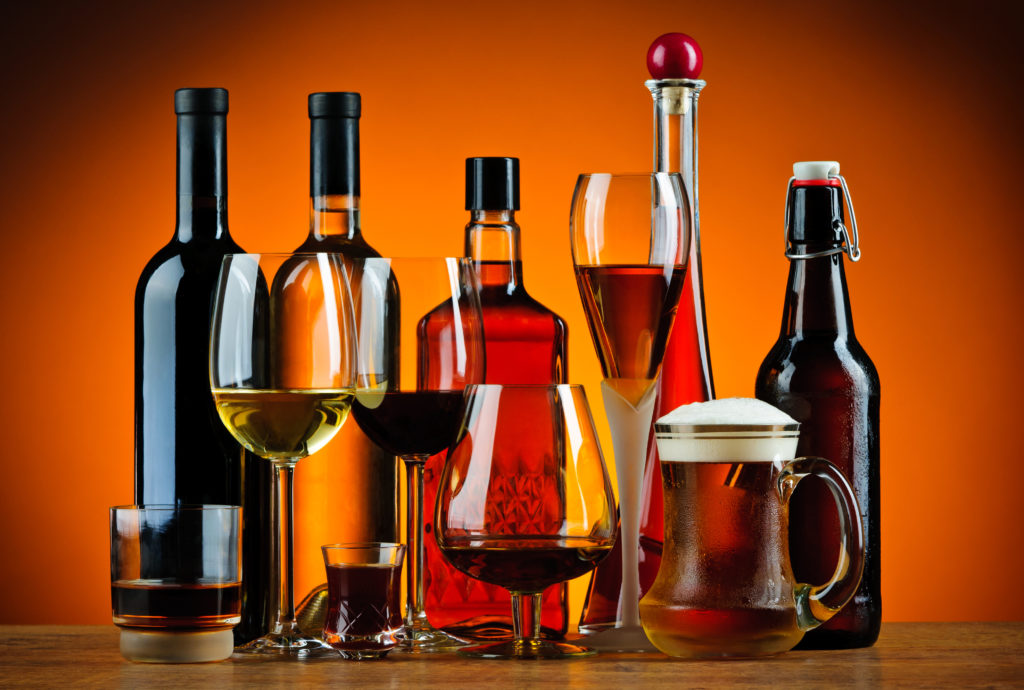Quick Hits
Daily brief research updates from the cognitive sciences

The tide seems to have turned on alcohol. Though we have always known that excessive alcohol consumption is negative there were for a long time inconsistencies with the research into modest levels of alcohol consumption – with multiple studies showing beneficial effects.
These effects could, however, be from other sources, such as the antioxidants in red wine, or the increased social contact through drinking with friends. I reported here on how alcohol even in modest amounts can lower life expectancy – gulp! However, mild amounts only had mild effects – that’s the good news for you (us) drinkers.
A new study just published has looked at correlations between alcohol consumption and iron levels in the brain. High iron levels in the brain is associated with various neuro-degenerative conditions such as Alzheimer’s and reduced cognitive function. The data was taken from the UK’s biobank and data from 21’000 people was analysed. This connects various lifestyle factors, personality, demographic, cognitive function, and is combined with brain scans and other biological data.
The researchers around Anya Topiwala of the University of Oxford found that more than seven units per week was associated with markers of high iron in a region of the brain called the basal ganglia. The basal ganglia is an important part of the brain associated with, amongst others, reward, but also motor control, and learning. This higher iron accumulation was associated with slower executive function, lower fluid intelligence, and slower reaction times.
There were other regions of the brain which showed higher iron levels, but they didn’t find strong and robust enough associations to deem these causal.
There are a number of caveats to the study we also know for example, that many people underestimate how much alcohol they drink. So, seven units is a very rough estimate.
However, this does show and support other research that shows even moderate alcohol consumption can have detrimental effects on the brain and cognition. Low to mild quantities though do show mild, if any, correlations to these declines.
So, the advice is simple – go easy on the drink!

Andy Habermacher
Andy is author of leading brains Review, Neuroleadership, and multiple other books. He has been intensively involved in writing and research into neuroleadership and is considered one of Europe’s leading experts. He is also a well-known public speaker speaking on the brain and human behaviour.
Andy is also a masters athlete (middle distance running) and competes regularly at international competitions (and holds a few national records in his age category).
Reference
Anya Topiwala, Chaoyue Wang, Klaus P. Ebmeier, et al.
Associations between moderate alcohol consumption, brain iron, and cognition in UK Biobank participants: Observational and mendelian randomization analyses.
PLOS Medicine, 2022; 19 (7): e1004039
DOI: 10.1371/journal.pmed.1004039
More Quick Hits
How Sleep Helps Your Brain Manage Fear
Quick HitsDaily brief research updates from the cognitive sciences leep on i” is common advice for many reasons. Often to consolidate thoughts and help boost creativity. This is a well-known effect. We also know that sleep is the time that helps to...
Video games can boost children’s intelligence
Quick HitsDaily brief research updates from the cognitive sciences ell, this is not the answer many of us would expect, and it goes against other logic of spending more time doing other things such as reading or socialising with friends...
Just how many people get COVID brain?
Quick HitsDaily brief research updates from the cognitive sciences here are many questions still open about COVID and the brain. There is no doubt that long COVID exists, and this can have dramatic impacts on people’s lives. But just how...
Brain networks and losing weight – successfully or not
Quick HitsDaily brief research updates from the cognitive sciences s weight loss all in the mind? Well, with the danger of oversimplifying a complex topic, this latest research shows it is, and shows precisely how and with what networks. So,...
Reversing aging – with poo!
Quick HitsDaily brief research updates from the cognitive sciences ho wouldn't want to age better - well the results of an unsual study are in and the results are promising and may make many of you who are aging prick up your ears. The...
Brisk walking slows biological aging
Quick HitsDaily brief research updates from the cognitive sciences f you want to age better, then walk quicker, or those who walk quicker, age slower. That is the result of a recent study of 400,000 UK adults mapped to genetic markers of age...






